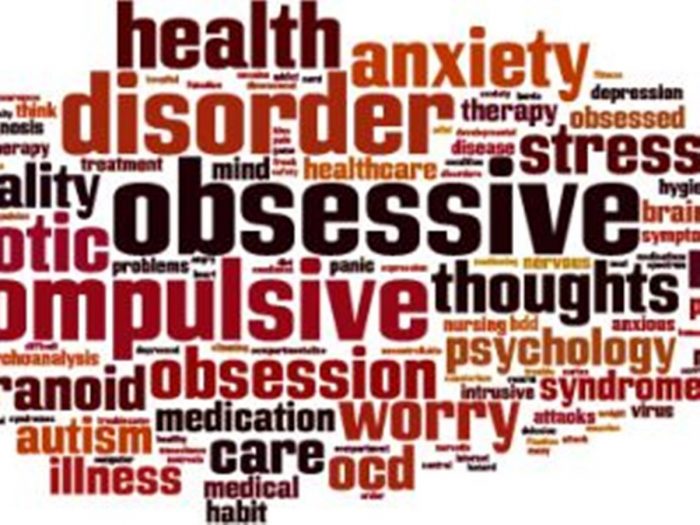OCD (obsessive-compulsive disorder) is a mental disorder that affects millions of people around the world, but there are a number of ways to remedy or treat this condition, including the use of cutting back on caffeine and alcohol, meditation, massage, and regular exercise, as well as the use of marijuana, kava-kava, and ginkgo.
Home Remedies for OCD (Obsessive-Compulsive Disorder)
Home remedies for obsessive-compulsive disorder include:
Reduce Caffeine and Alcohol
There are many stress-related triggers that can exacerbate OCD compulsions, so cutting back on stress-inducing chemicals, like caffeine and alcohol, is a very good idea. Once the artificial boost of caffeine fades and the rush of alcohol runs out, then you’re left with a hangover, the caffeine jitters, and a lack of energy. This can be a stressful setting that kicks your OCD into a higher gear. [1]
Eat Regularly
The body reacts negatively when it is experiencing stress, and when we’re hungry or nutrient-deficient, it can result in a dangerous or distracted mindset. Lower blood sugar can cause stress in the body, which can induce OCD symptoms or routines. Hurried eating and binge eating are also bad for the body, so ensure that you have three regular-sized meals per day, chew properly, and don’t stress eat, as this can lead to more OCD compulsions. [2]

Disorders that affect your mood, thinking & behavior can all be characterized as mental health disorders. Photo Credit: Shutterstock
Exercise Regularly
Healthy endorphin release in the body is very important for overall health and metabolism. Exercise is one of the best and easiest ways to boost these chemicals in your body, so getting out 3-5 times per week and getting your blood rate up is a wise choice. By keeping your body in good shape and using up the excess energy you have stored up, you’re more likely to avoid compulsive behaviors. Exercise is also good for mental health and clarity, as well as being a natural stress reliever. [3]
Marijuana
Although this is not legal or available in many countries, the increase in studies on marijuana’s health benefits has been very interesting. It has been shown that marijuana causes a dopamine release in our brain, which can calm us down and cause a feeling of relief and pleasure, something that anxiety-wracked sufferers of OCD don’t often experience. Before seeking out marijuana for medicinal purposes, be sure that it is legal and regulated in your location. [4]
Massage
The benefits of massage have been known for thousands of years, both as a detoxifying tool for the body and a way to relax the mind. If you suffer from OCD, getting regular massages can help to lower your stress levels and calm your physical urges to perform OCD compulsions. [5]
Kava-kava
Anxiety and insomnia are closely linked to OCD symptoms, and kava-kava has been used for centuries to treat these two problems. Therefore, consuming kava-kava supplements can be a daily means of calming down and lowering stress levels, which will help you avoid OCD compulsions, or cut down on their severity. Use of kava is banned/restricted in many countries, so consult your health specialist before use. [6]
Ginkgo Biloba
Using ginkgo biloba is common for certain sexual side effects of medications, including SSRIs, but it is also a soothing and mind-clearing substance that has been directly linked to lowered stress levels. Given the major problems of OCD stem from stress, this herbal supplement can help you get your life back and overcome any side effects if you are treating your OCD with SSRIs. [7]
Gotu Kola
Another very powerful herbal supplement that treats depression and anxiety is gotu kola, which has been used in Ayurvedic and Chinese traditions for thousands of years. Anti-anxiety herbs like gotu kola are ideal for those suffering from OCD, helping people to overcome their triggers and move calmly through the world without constant distractions or nervous tics. [8]
Normal Sleep Patterns
A lack of regularity in your sleep can seriously mess with your mental clarity and sense of calm. If you set a definite time for falling asleep and waking up and try to stick to it, you’ll start your days more energized and less fatigued or depressed. This type of uncertain lifestyle can result in cyclical depression and anxiety, which makes OCD symptoms even worse. [9]
St. John’s Wort
For generalized anxiety disorder, St. John’s Wort is one of the most preferred herbal treatments, and it has shown positive impacts on sufferers of OCD as well. A daily supplement is a simple and easy way to lower stress levels and improve mental focus and clarity, which can reduce the compulsion to actions, thoughts, or routine behaviors. [10]
Quit Smoking
The stimulant nature of cigarettes can be very detrimental for people suffering from OCD, as the rush and depletion of nicotine, and the addictive nature of smoking, both combine into a dangerous situation for people already trying to handle a compulsive behavior. Increasing the amount of patterned behavior is a bad thing when you suffer from OCD, and there are few things as compulsive as smoking. [11]
Word of Caution: There is a high link between OCD, depression, and a higher risk of suicide. If you are suffering from OCD symptoms, it is important that you talk to someone, whether it is a therapist, a family member, a friend, or a doctor. Many of the symptoms can be treated, but it is important that you don’t tackle OCD alone, as it remains a mysterious and dangerous disorder that requires proper care.
